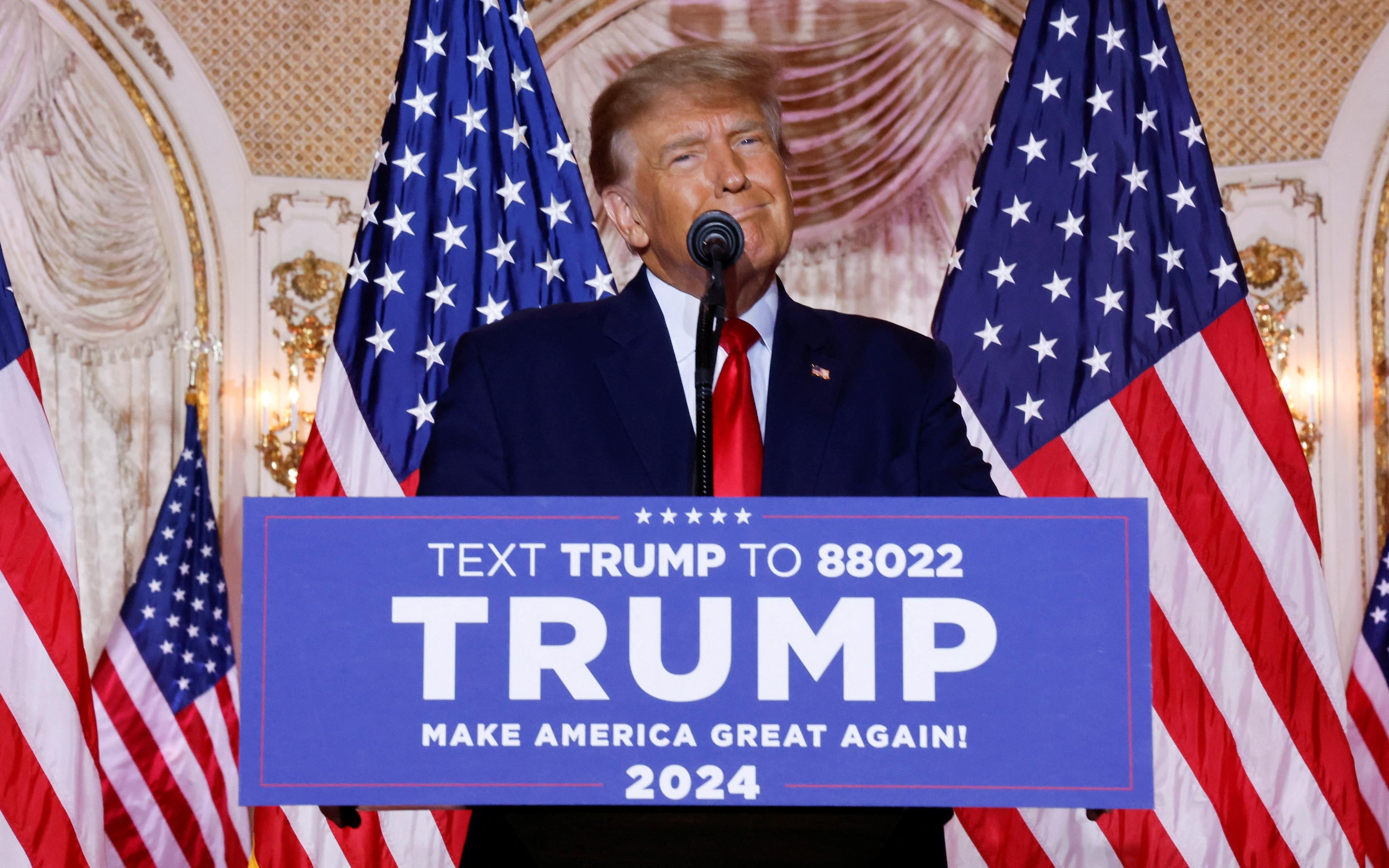Welp, he’s running. Despite a growing chorus of Republicans wishing he wouldn’t, he’s running. Despite reducing the anticipated “Red Wave” to a mere trickle in the midterms last week, he’s running. Despite an upcoming Georgia Senate runoff that hangs in the balance, he’s running.
Donald Trump announced on Tuesday that, yes, he’s running for president in 2024.
"America’s comeback starts right now," Trump told supporters at Mar-a-Lago in Palm Beach, Fla., officially declaring his candidacy after filing his paperwork earlier in the day.
"Under my leadership, we were a great and glorious nation ... But now we are a nation in decline."
Why is he doing this? Because it will make the entire process of choosing a GOP candidate for 2024 about the thing Trump cherishes most: himself.
Whether he makes it through to the general or not, he’ll still control a huge chunk of loyal voters. Come 2024, Trump will be one of two things for the GOP: the King or the Kingmaker.
What the polls say. Trump held a commanding lead over most potential GOP primary rivals until the midterms, but several polls conducted since then show him on a downswing. Some studies even show him trailing rising GOP star Ron DeSantis, the newly reelected governor of Florida, by double digits in a hypothetical matchup.
What about that Georgia senate runoff? Both Democratic incumbent Raphael Warnock and his Trump-backed rival Herschel Walker want to boost turnout ahead of their December 6th runoff. Last week, Warnock finished ahead by a mere 36,000 votes. On balance, given how other Trump-backed candidates fared on election day, the specter of Trump’s return could hurt Walker, driving extra Democrats to the polls, giving the party a 51st seat in the Senate.
Who’s gonna challenge Trump? There’s been a lot of attention on DeSantis lately – including from Trump, who’s blasted Gov. “Desanctimonious” in recent days. But there are others out there: the Mike Pences (whose book release has been typically stepped on by the Trump news) the Nikki Haleys, the Glenn Youngkins, the Tim Scotts, the Chris Sununus, and so on.
The big question for all of them now, says Jon Lieber, US politics director at Eurasia Group, isn’t only how much money they can raise against the Trump juggernaut, but also how much abuse they and their families can take over the next two years.
“What’s my nickname gonna be? How many times do I want to get stuffed in the locker while walking around campus?” These are the calculations Lieber says are going through the heads of the other GOP hopefuls. “It’s scary to punch the bully in the face.”
And there’s no bully quite like Trump.
Can Trump win this thing? You’d have to be crazy to count him out. Despite his recent troubles, his announcement is hardly “General Custer, hold my Diet Coke.” During the primaries, Trump will look to grind down and divide the anti-Trump Republican bloc just like he did in 2016. And if he makes it through to a general, he remains an extraordinarily effective communicator with a huge base of support and uncanny political instincts.
Still, the GOP has a problem now. Trouble is brewing within the GOP itself, says Lieber. Trump might be too toxic to win a general election himself now, but without his voters, no Republican stands a chance in 2024.
“His presence threatens a rupture in the party whereby a bunch of Republican voters who are needed to win in a general election take their ball and go home if Trump isn't the guy. So the problem the Republicans face is basically: can't win with Trump and they can't win without him.”
Buckle up, America. We’re gonna do it all again.
This article was featured in SIGNAL, the daily politics newsletter of GZERO Media. For smart coverage of global affairs that normal people can understand, subscribe to SIGNAL here.
